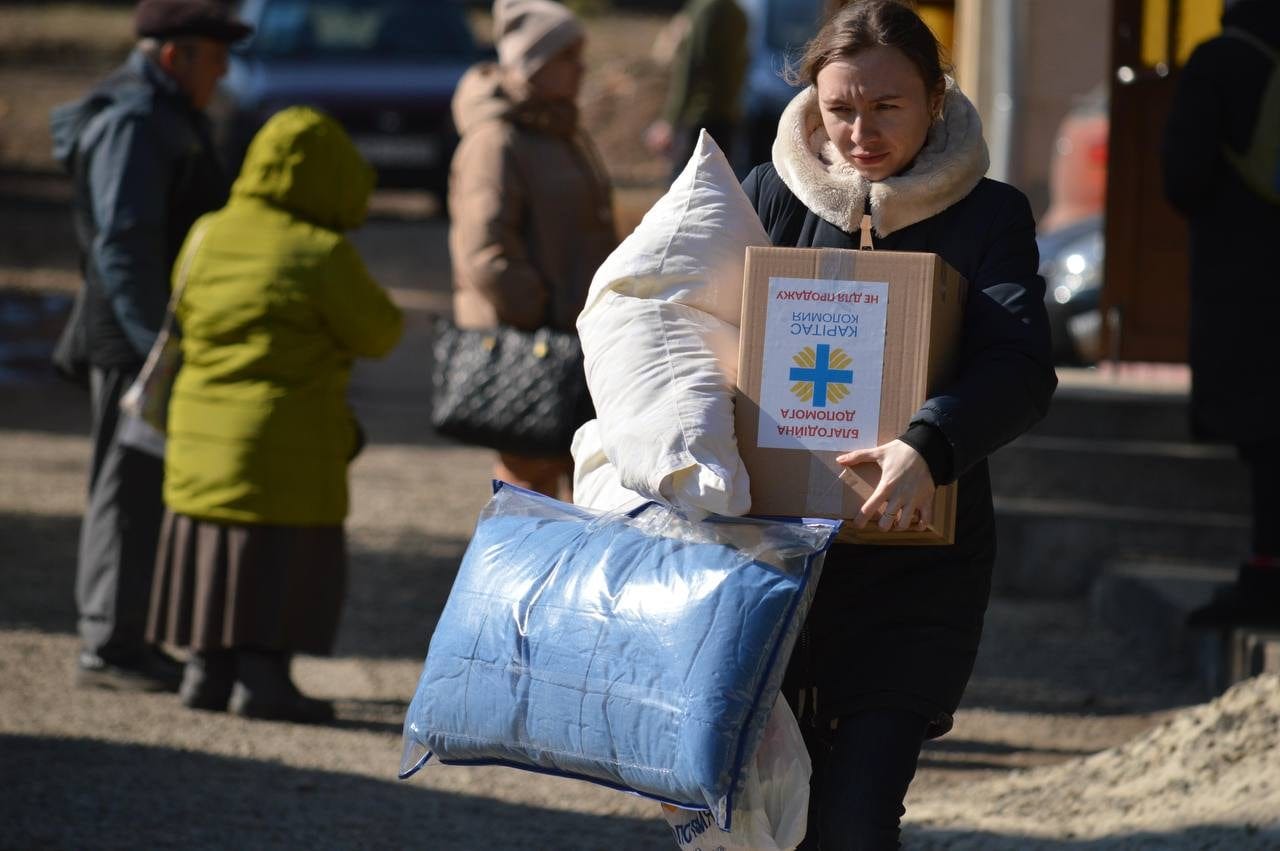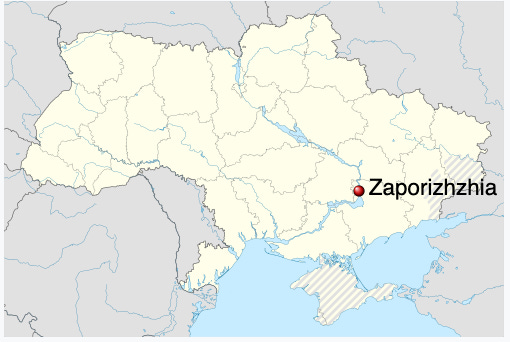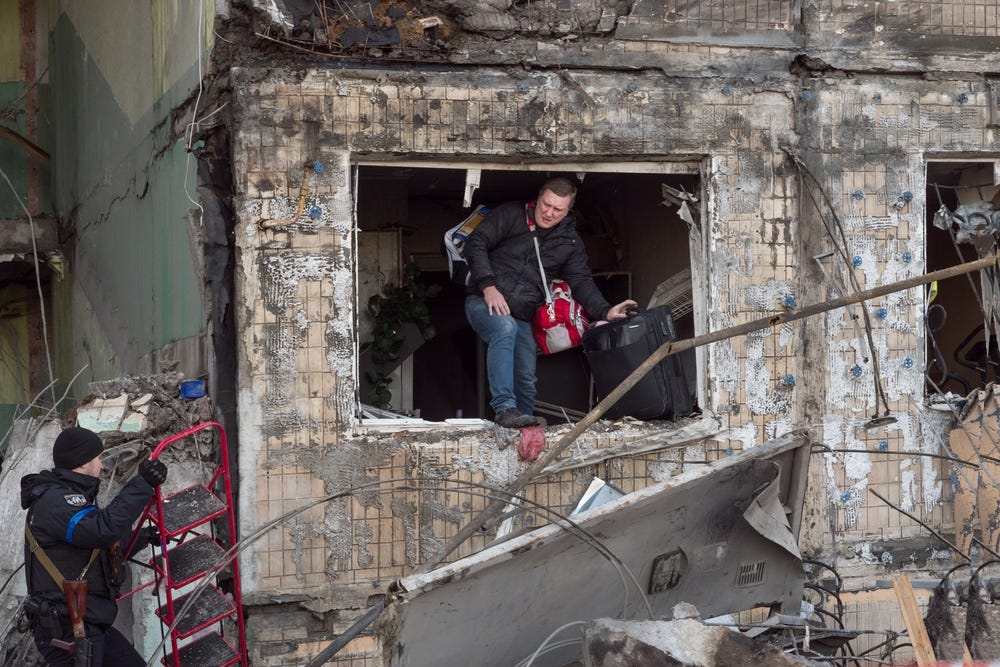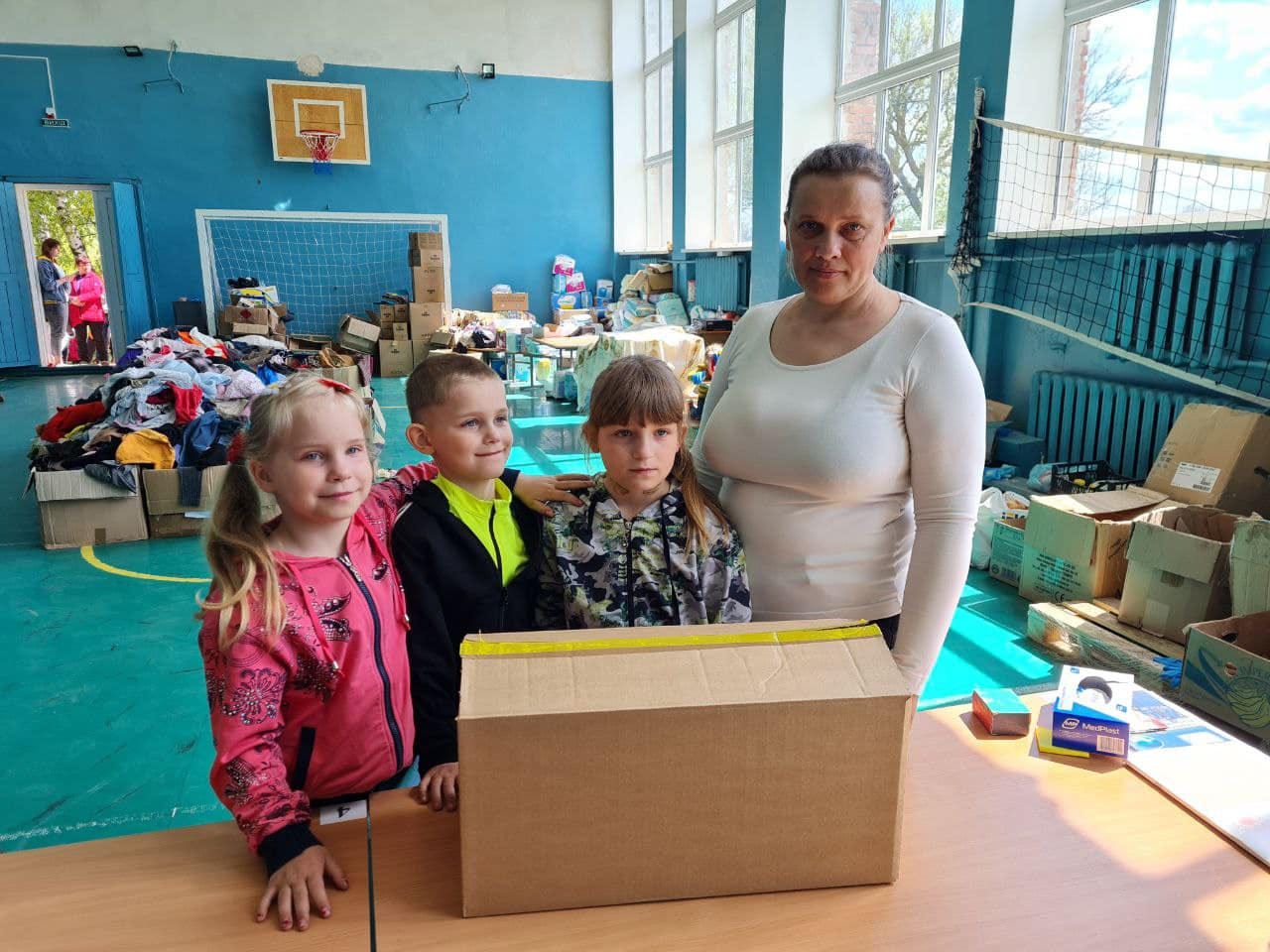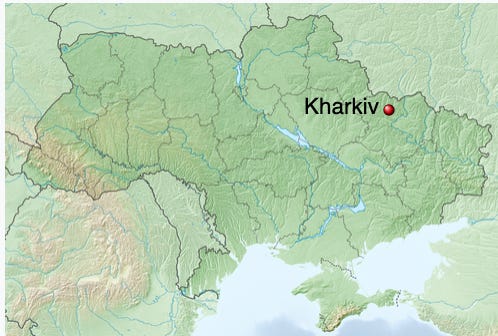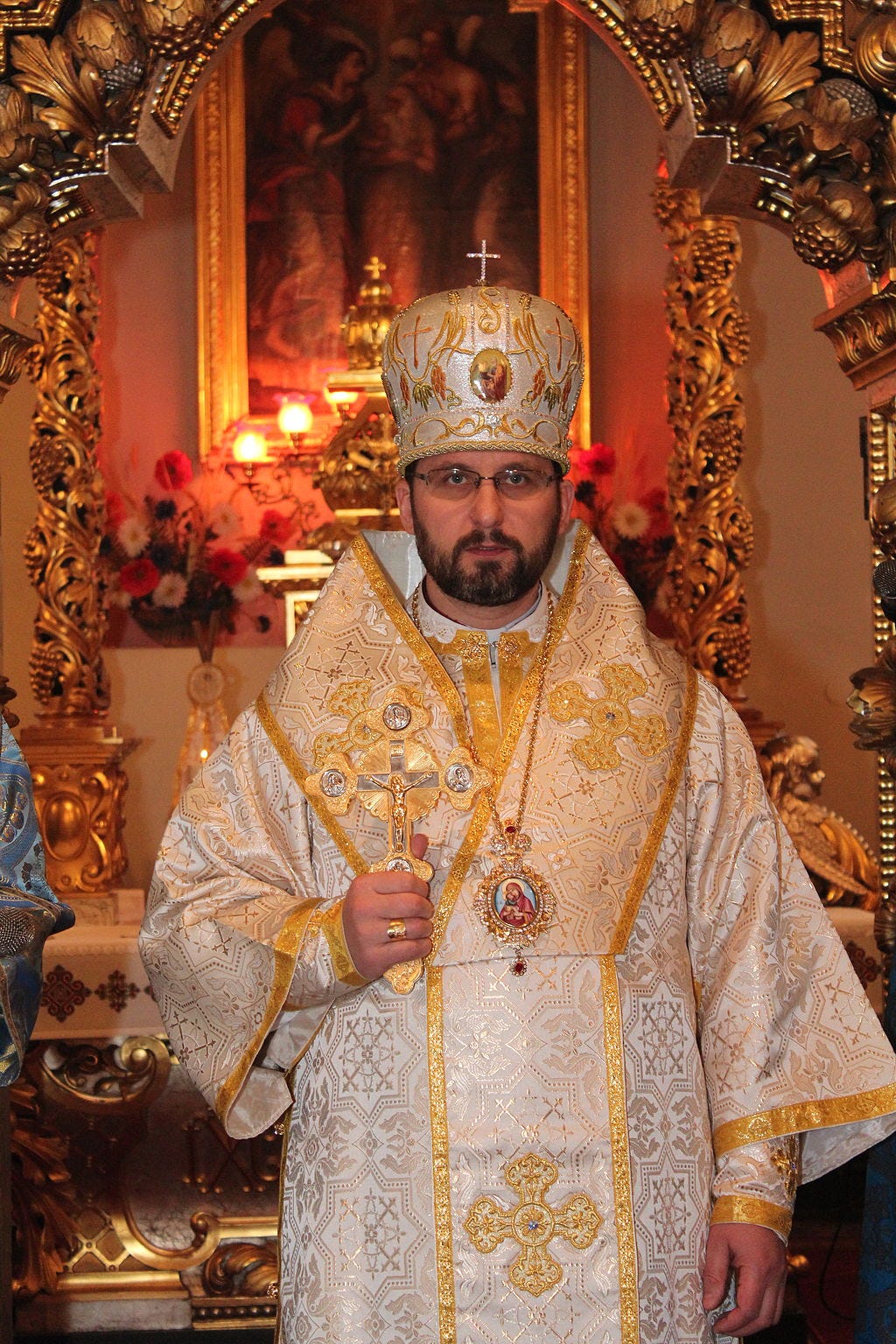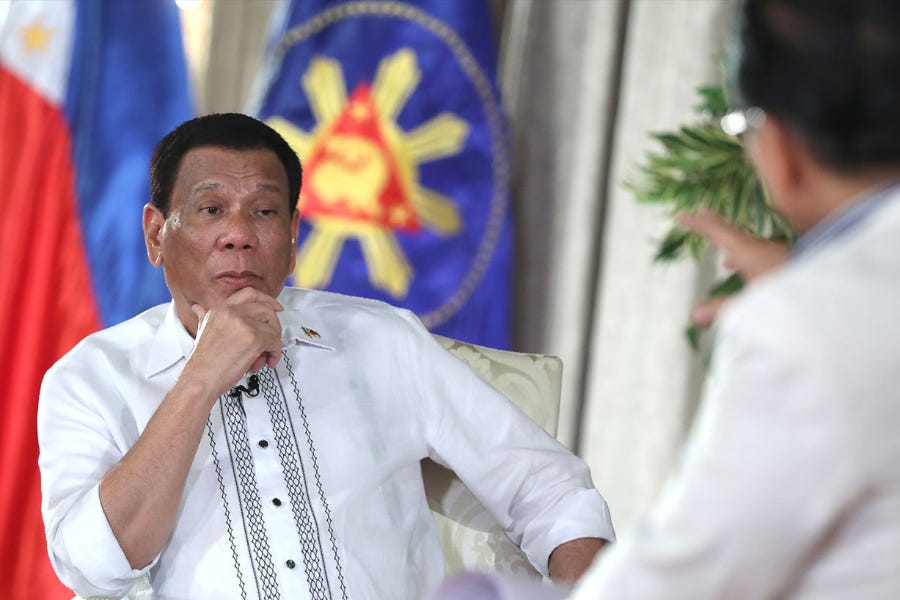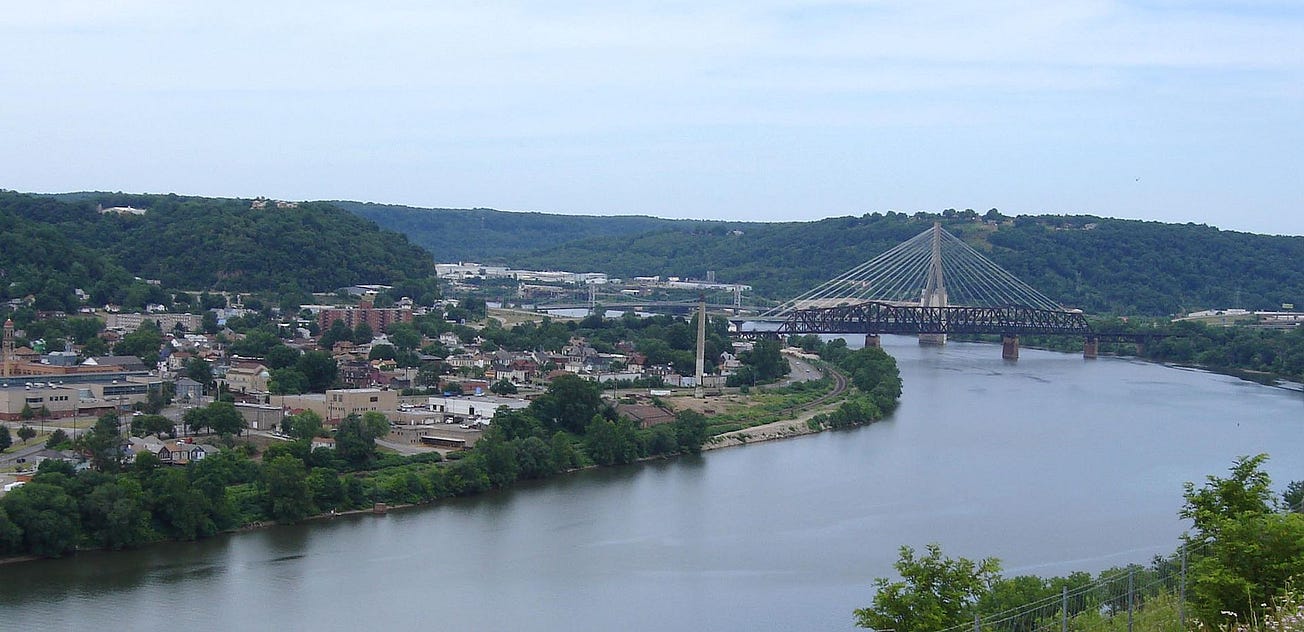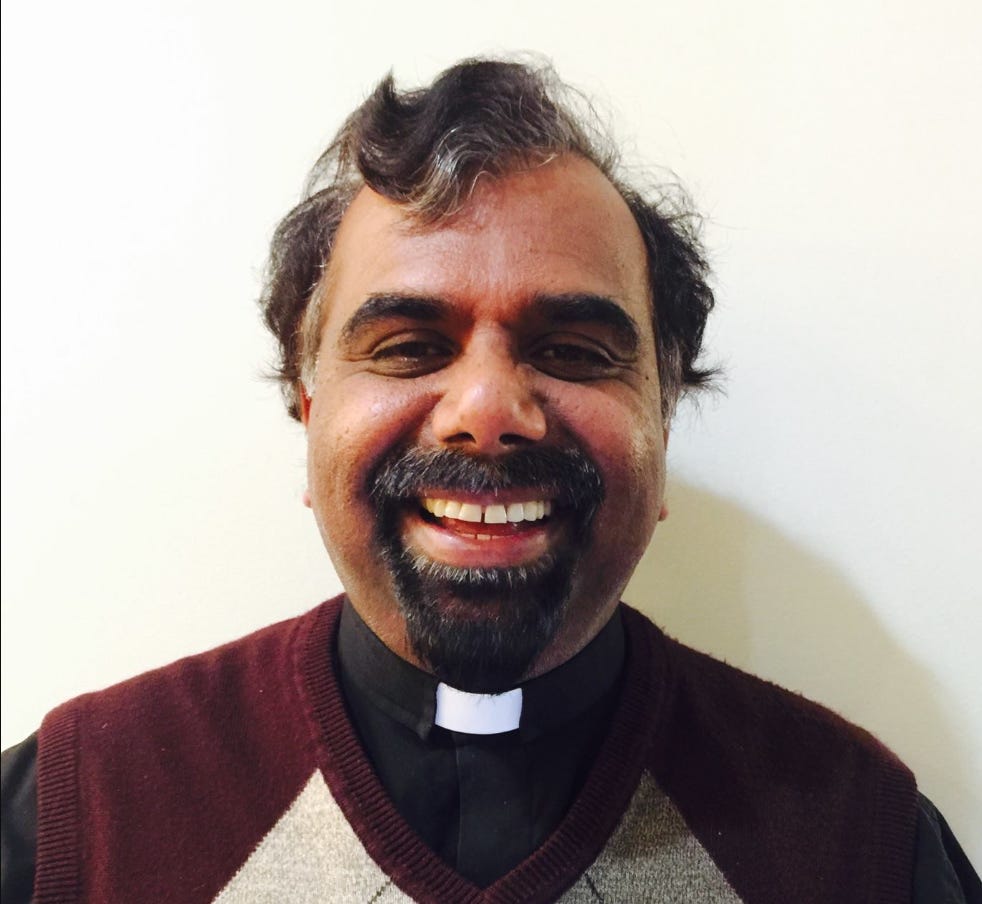The Russian invasion of Ukraine, which began in 2014 with the annexation of Crimea and the occupation of parts of the Luhansk and Donetsk regions, has caused serious problems for the pastoral work of the Ukrainian Greek Catholic and Latin Catholic Churches in eastern and southern Ukraine.
Some priests have been forced to leave their parishes, and those who have continued their ministry in territories not controlled by the Ukrainian government face different obstacles.
Bishops and priests who spoke with The Pillar described spiritual, psychological, and material suffering, and said that pastoral care has not been easy. But one priest told The Pillar that the Church is close to the suffering of Ukrainians, and the experience can be sanctifying.
After Russia's full-scale war against Ukraine began in February, the number of Eastern Catholic and Latin parishes in the war zone or on the front line increased exponentially. Some parishes are in territories still not controlled by the Ukrainian military forces; others had been under occupation for some time, and were liberated during the Ukrainian army's counteroffensive.
Today in the east and south of Ukraine, there are three exarchates of the Ukrainian Greek Catholic Church and two dioceses of the Latin Church, whose territories remain partially occupied by Russian troops. Most Eastern Catholic and Latin priests in those regions have been forced to leave their parishes, but some continue their ministry despite the difficult circumstances in which they and their people are now living.
‘The terrible shellings’
Bishop Stepan Meniok, CSsR is the Ukrainian Greek Catholic Exarch of Donetsk, leading a small flock in the eastern Ukranian Donetsk oblast. He told The Pillar that some parishes in his diocese are functioning, while others have been abandoned, or destroyed by the war.
From the city of Zaporizhzhia, Meniok told The Pillar that the situation in territories not controlled by the Ukrainian government since 2014 has remained unchanged: “We have four priests left there who serve the faithful.”
The Zaporizhzhia region was captured by Russian forces after the Feb. 24 invasion of Ukraine. Parishes in the southern part of the regions, in Berdiansk, Melitopol, Prymorsk, and Tokmak are still functioning, according to the bishop.
But “because of the terrible shellings, we had to leave the parishes in Severodonetsk, Lysychansk, and Kreminna in the Luhansk region. There are awful battles there. A lot of people were killed. Churches are damaged but not destroyed. Some priests left other parishes, even where there was no great danger. However, I could not say anything because I understood that there are different life situations,” Meniok explained.
“The building of the Caritas Charitable Foundation and a chapel in Mariupol were destroyed. A tank fired twice at it, killing two of our accountants. Some people were trapped but were later pulled out. The priest was forced to leave Mariupol, and it is said that his house and the chapel nearby were utterly destroyed.”
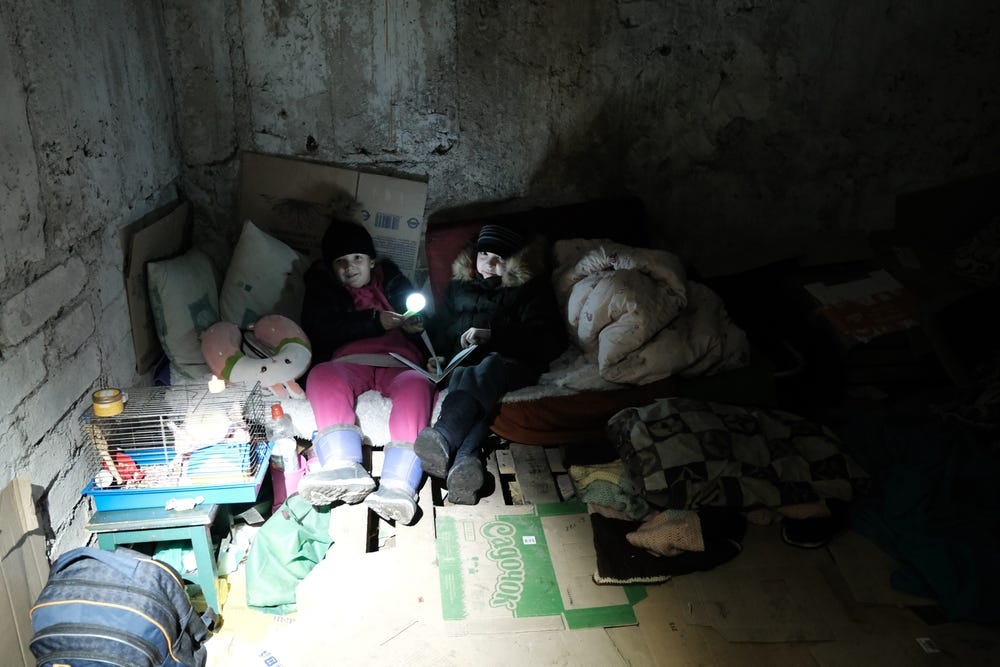
The situation for parishes of the Latin Catholic Church in eastern Ukraine is no less difficult.
Bishop Jan Sobilo is an auxiliary bishop of the Kharkiv-Zaporizhzhia diocese, and he also lives in Zaporizhzhia.
Sobilo said that pastoral work in the Russian-occupied territories was virtually paralyzed in 2014:
“There hasn't been a Holy Mass in Luhansk for two years, because Roman Catholic priests are not allowed there. I wanted to go there by myself, but my request was refused.”
“From time to time, our faithful are cared for by Greek Catholic priests. They confess our faithful and celebrate a Holy Mass for them. Our priests are Polish citizens, and our Greek Catholic brothers have Ukrainian citizenship, so it was easier for them to stay. They have permission to serve in both rites and thus save the situation. They visit the sick, deliver them Holy Communion,” the bishop explained.
“When the next phase of the escalation of aggression began this year, our Pauline Fathers were forced to leave Mariupol in the first weeks. A shell fell near their monastery, and later the monastery was looted and damaged. One policeman who lived nearby went there and found only the Missal and brought it to me. Priests from Berdiansk and Melitopol also left,” said Bishop Sobilo.
‘Post-traumatic syndrome’
Bishop Pavlo Honcharuk, head of the Latin Catholic Kharkiv-Zaporizhzhya diocese, told The Pillar that churches in the northern part of his diocese have been mostly undamaged.
Only one church in Kharkiv was damaged by the explosion but not critically.
“For two months before the war, because it was clear that something was going to happen, at priests' meetings, we instructed priests on what to do in a war situation. I recommended evacuating all women’s convents, so before the war began, they left. Some priests and monks also left; I gave them leeway in this situation,” the bishop said.
Commenting on the situation in his city, Bishop Pavlo said the situation remains difficult:
“There is no telling how long this will continue; many people have lost their jobs and run out of money, and poverty is beginning to set in. Many people have a post-traumatic syndrome. People don't know whether to come back or not. It's hard to say what will happen next, so there's confusion.”
“There was a time when the city was almost completely cordoned off, the stores were closed, the city was empty, and there was fighting in the vicinity. Now the stores are open, but people don't have the means.
On the other hand, I admire the courage and sacrifice of our utilities, rescue services, and firefighters who did their jobs despite everything. It is an invisible work during peacetime, but despite the danger, they acted heroically. This also applies to volunteers and priests.”
Bishop Vasyl Tuchapets, OSBM, Ukrainian Greek Catholic Exarch of the Kharkiv-Poltava, told The Pillar that his cathedral is in the Saltivka neighborhood of Kharkiv, which fell under heavy shelling.
“North Saltivka is almost destroyed. Our church, thank God, remained intact. When there was heavy shelling, people lived in the chapel in the basement.”
“Despite everything, we didn't stop the worship services in the church, and people continued to come. Near the border with Russia, one of our parishes is under occupation. The priest was forced to leave there. Another priest also managed to leave Izium. He sat in the basement for more than a week under constant bombardment.”
Speaking about the situation in Kharkiv, Bishop Tuchapets said that growing financial desperation has become one of the most pressing problems Kharkiv.
“Every day, we help about 1,500 people with food and everything they need. Some people survive only because of this help,” he said.
Fr. Mykhailo Stanchyshyn, SJ, who came to Kharkiv from Lviv at the beginning of the war to help with pastoral care, told The Pillar that a missile strike damaged his apartment and the bishop's apartment, so both are now forced to live in the cathedral’s quarters.
‘Material hardships can be endured’
The situation is no less difficult in the Ukrainian south, part of which has also been occupied by Russian troops.
According to Exarch Mykhailo Bubniy, CSsR, of Odessa, there are now two deaneries of the exarchate in territories not under Ukraine's control - Kherson and Skadovsk, where there are 16 parishes. But, as of today, only five priests remain there; the rest were forced to leave because of the intense fighting and are unable to return.
“Priests are trying to work on delivering humanitarian supplies and thus help the people left there. One priest even remotely supports the work of the charity kitchen, which is in his parish and continues to operate., the bishop said.
According to the bishop, catechetical work among youth and children also continues remotely in Odessa when it is possible.
Bishop Stanislav Shyrokoradiuk, O.F.M., a Latin Catholic bishop in Odessa, told The Pillar that three churches have been destroyed since the war began in his diocese.
"There was an old church in the village of Pravdyne. There the village is almost destroyed now; many have been killed. Also destroyed was the village of Kyselivka, where our church was also demolished. A total of six of our parishes fell under occupation."
Bishop Shyrokoradiuk said the most significant pastoral challenges in his city are related to the psychological problems setting in amid protracted conflict.
“Reports of deaths come in every day. Material hardships can be endured. But many children and elders are mutilated. This is horrible.”
In addition to the material and psychological challenges facing the Churches now in eastern and southern Ukraine, all bishops who spoke with The Pillar said that between 50 and 80 percent of their congregations have been forced to leave for the west or abroad, and it is clear whether many will all return.
‘We are with our people’
While active fighting continues in the east and south, in northern Ukraine, liberated from Russian forces last month, towns and villages are returning to life. But sirens continue to sound daily, and the threat of a repeat offensive and rocket attacks remains.
Fr. Myroslav Latynnyk, a Ukrainian Greek Catholic priest from Irpin near Kyiv, left the city in early March because of heavy fighting: “His Beatitude Sviatoslav told me later that he did not know if we were even alive because there was no communication with us. When I came out of the basement, I didn't even know if it was Monday or Tuesday.”
Latynnyk spent considerable time with parishioners in hiding in the city, where he said that time stretched extremely slowly.
“I was very afraid for our parishioners that if the Russians took over the city, they would come to our church first. They would start to round up active people who were patriotic. And our church is patriotic because we are with our people. But about 95 percent of our parishioners have left, although some were here for the whole period of the occupation and only left afterward for rehabilitation and rest.”
“One of our parishioners, unfortunately, was killed. He was trying to leave the city by car and was shot from a tank. His wife searched for him for a month. I reburied another parishioner after my return; he died during the occupation and was buried at home in the vegetable garden,” Latynnyk said.
The priest returned to Irpin after Easter: "I went into the churchyard; the church had signs of shelling, no windows, no electricity. I walked around for a long time and couldn't go inside. I knelt and prayed and cried. After an hour, I went inside the sanctuary. I prayed there and came out," he told The Pillar.
Another Ukrainian Greek Catholic priest, Father Yuri Lohaza, who serves at the northernmost parish of the UGCC in Slavutych, 13 kilometers from Belarus, has remained under occupation all along.
The town is the newest in Ukraine, because it was built after the Chernobyl nuclear accident for people who were relocated from the affected area.
“For me, the war started with a call that I had to go to a military unit because I was a National Guard chaplain. Our town was immediately blockaded from all sides. And those who tried to leave were sometimes shot. Later, there was no electricity and no running water. People burned fires in the street and cooked food. Fighting for the city lasted about three days, and the Russians entered. However, people went outside, protested, and showed that this was a Ukrainian town, and they were not welcome here. Russians responded by throwing smoke grenades and dispersing people.”
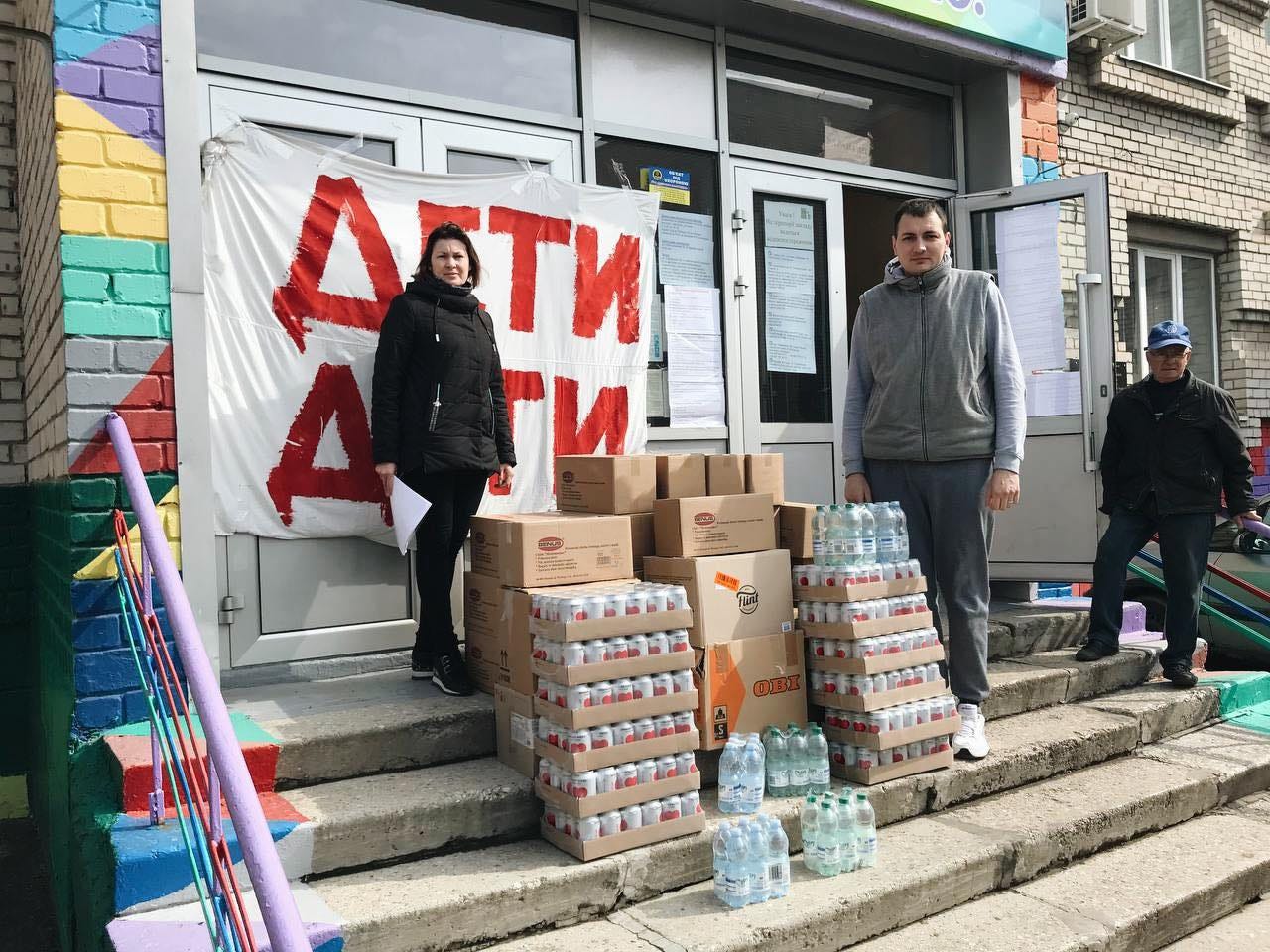
The priest said he received anonymous threats to his life even before the Russians entered the city.
Fr. Lohaza said that almost half of the 25,000 inhabitants evacuated from the city.
“It was extremely difficult for them. Many were born in the 1960s and '70s. They survived one time the evacuation because of the explosion at Chornobyl. For them, the word ‘evacuation’ was scary.”
“For me, the most difficult situation was the birth of my child. I am a married priest and have two children. My wife was pregnant with her third child, but we have no maternity hospital in town (the closest one is in Chernihiv); there was no electricity and running water. There was no way out of town at the time. It's hard to describe, but everything worked out fine, thanks to the hospital staff. Another issue is that the 167 soldiers I was a chaplain to were captured, they were guarding the Chernobyl plant, and it's very hard. Their relatives are going through difficult times; we don't know anything about them,” the priest added.
Both Fr. Myroslav Latynnyk and Fr. Yuri Lohaza said that although their towns have been liberated from Russian occuptation, people are still reluctant to come back, and that it will take a long time to restore a pre-war life.
Fr. Oleh Zymak, CSsR, who serves at a Ukrainian Greek Catholic parish in Brussels, was in Rome before the war began. He was working on a dissertation on moral theology at the Alphonsian Academy.
When he learned in early February that Ukraine might experience a military attack, Zymak decided to go to Kyiv: "I told my superior that I could not continue to write a work on moral theology in such a situation; it would be immoral. And I asked to be included in the lists for the eastern Ukraine, where I could substitute for local priests, in particular those married and with families."
Fr. Zymak arrived in Kyiv on Feb. 17. On Feb. 23, he decided to visit the city of Chernihiv for one day, where male and female Redemptorist houses in Ukraine are located. He stayed there until April 2, since the city was under siege.
“It was a special time. Being there, praying there, and interacting with people under those conditions was a special experience. I'm still rethinking it all. There wasn't a day that went by that there wasn't a worship service. Sometimes I was serving, and the bombing started; sometimes, I started serving already during the bombing. There was no fear as such, but I was careful.”
“At first, we hid in the corridor according to the ‘two walls’ principle, but later we saw what was left of the building next to us that was hit by a missile, and we realized that nothing would help us. After a week, I got used to the missiles, but I never got used to the airstrikes. They flew every night, always at 4 a.m. My body was already waking up on its own at 3:55 a.m.”
Despite the tragedy unfolding in his country, Fr. Zymak told The Pillar he is incredibly struck by the unity of the people who united in the face of the deadly threat:
“People who didn't know each other before worked as one. Women, elders, and children were building barricades together, hauling sandbags. The Russians couldn't take the city and took vengeance, bombing the social infrastructure, shelling hospitals. They destroyed the water main, and we were delivering water to people around the city.”
“I was amazed at how people could organize themselves so that everyone in need could get that water. The sick, the elderly, and those who couldn't come on their own. My heart was bleeding when I saw the elderly and disabled people who had to go get that water because nothing worked,” the priest said.
Zymak said that while Chernihiv was under siege, his order’s church was open all day long for anyone to come. About 40 people lived permanently in the sister’s convent's basement, because they had either lost their homes or were afraid to stay home alone.
“Different people came, not just parishioners. We had mostly women. There were Muslims; there were people who had probably never been to church. The door was open to everyone.”
Summing up his experience Fr. Zymak said the war will be a transformative, even sanctifying, experience not only for Ukrainian society but also for the Church, which, he said, is grappling with difficult questions alongside all Ukrainians:
“After the war, I think Ukraine will be much different. And those who want it to be as it once was will be chased away. I would like our Church to make an upgrade, a spiritual upgrade as well.”
“We are now a Church that can lead the way. But if we don't keep up with society, if we are a Church that the laity will have to drag along, it will be sad. I don't feel uncomfortable being asked questions I can't answer. Why? I don't force myself to answer; I say I don't know the answer, but let's think together. And then I offer my opinion, and then there is dialogue. This is the way we should go along; I think.”
“I pondered this while I was in Chernihiv. I believe that we, clergy, often try to compensate the content by the form. But we don't need to do that. We need to care more about the content. We need not be afraid to be ourselves, even to show that we are fragile. To show our frailty is to be authentic.”

